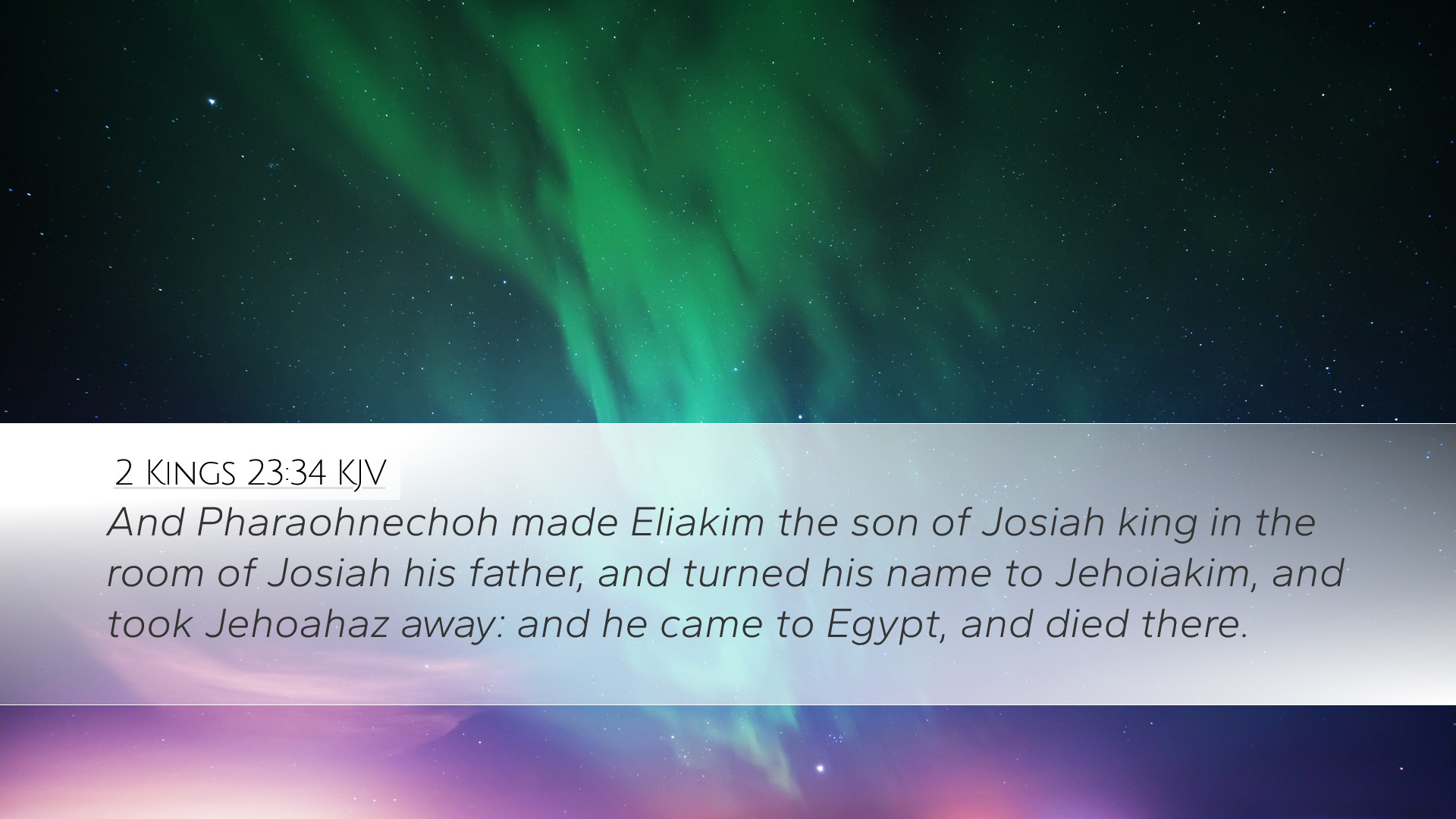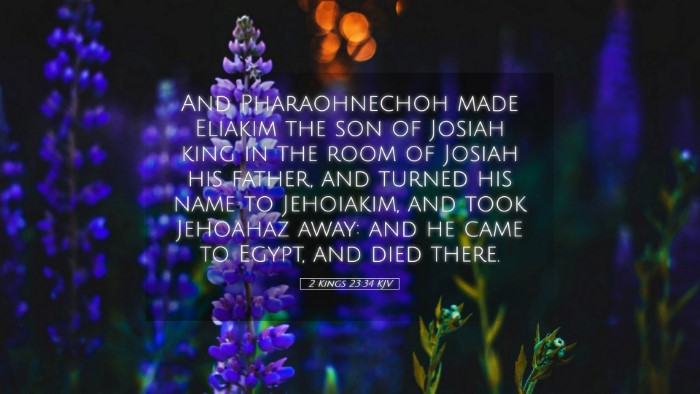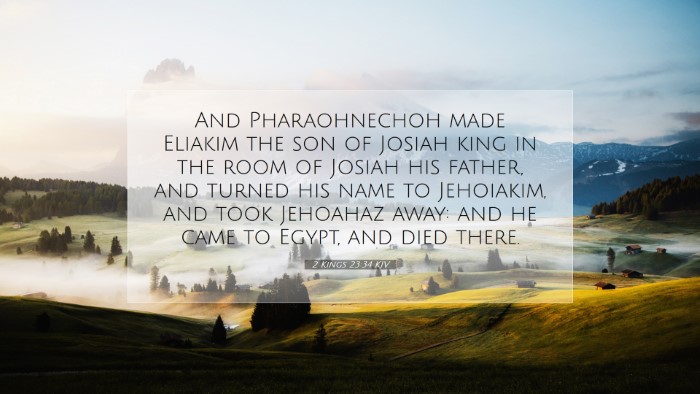Commentary on 2 Kings 23:34
Bible Verse: "And Pharaoh-nechoh made Eliakim the son of Josiah king in the room of his father Josiah, and turned his name to Jehoiakim, and took away Jehoahaz his brother, and he came to Egypt, and died there."
Introduction
This passage appears in the historical narrative that chronicles the spiritual decline of Judah following the reign of Josiah, a king credited with significant religious reforms and a return to the worship of Yahweh. The text highlights the transition of power from Josiah to Jehoiakim under the aegis of Pharaoh Nechoh of Egypt, which set the stage for the ensuing troubles and ultimate exile of the people of Judah.
Historical Context
The political landscape at the time was marked by shifting allegiances and the dominance of foreign powers. Josiah, recognized for his religious reforms, was killed in battle (2 Kings 23:29) against Pharaoh Nechoh, setting off a series of unstable leadership changes. Nechoh's intervention not only reshaped the royal line in Judah but also illustrated the increasing influence of Egypt over the remaining independent kingdoms in Palestine.
Commentary Insights
Matthew Henry's Commentary
Transition of Leadership: Henry emphasizes the sovereign hand of God in the selection of Eliakim (Jehoiakim) as king. He notes that despite the apparent political maneuvering by Pharaoh Nechoh, God was still at work directing the course of events in Judah. This is a reflection of God’s ultimate control over nations and families.
Change of Name: The changing of Eliakim's name to Jehoiakim signifies not just a political shift but a spiritual one. It represents how foreign influence could lead to a shift in identity and purpose. Jehoiakim's reign would be characterized by ungodliness, in stark contrast to Josiah's righteous rule.
Albert Barnes' Notes on the Bible
Implications of Jehoiakim's Reign: Barnes comments on the nature of Jehoiakim's character, indicating that he ruled with an oppressive hand and was influenced heavily by Egypt's interests. Jehoiakim’s leadership marks a departure from the spiritual revival initiated by his father, which leads to complications between loyalty to Yahweh and allegiance to a foreign power.
Pharaoh Nechoh's Role: The significance of Pharaoh Nechoh’s decision to place Jehoiakim on the throne highlights the interplay between politics and religion. Barnes illustrates that Egypt's influence over Judah paved the way for greater political and spiritual decay, underscoring the theme of idolatry that reemerges during Jehoiakim's reign.
Adam Clarke's Commentary
The Fate of Jehoahaz: Clarke provides insight into Jehoahaz's removal and his subsequent fate in Egypt. This reflects not only the political upheaval but also a divine judgment upon the house of Josiah for returning to idolatrous practices. Clarke emphasizes the tragedy of a king who, despite having the potential for righteousness, was stripped of his throne and hope due to the failures of Judah.
Moral Lessons: Clarke concludes with reflections on the moral implications of the text. The leadership transitions serve as cautionary tales to those in positions of power, urging them to be mindful of their relationship with God and the responsibilities that come with authority. His insights urge contemporary leaders to learn from the mistakes and shortcomings of those in biblical history.
Theological Reflections
This verse serves to demonstrate the consequences of turning away from God and highlights the dangers of political entanglements that compromise spiritual integrity. In a time of significant moral and spiritual decline, Jehoiakim's rule epitomizes the struggle between fidelity to the covenant and submission to foreign powers.
God’s Sovereignty
The account of Jehoiakim's accession to the throne underlines the theological principle of divine sovereignty even amid human rebellion. It suggests that while individuals can make choices that lead them away from God, He remains involved in the affairs of the world, orchestrating events according to His ultimate will.
Call to Righteousness
For pastors and theologians, this passage encourages an examination of one's role and responsibility. It is a reminder that leaders are accountable before God and must guide their people toward righteousness, even amidst external pressures.
Conclusion
2 Kings 23:34 encapsulates a significant turning point in Israel's history that invites deep reflection on leadership, accountability, and the nature of divine sovereignty. By considering the insights from the public domain commentaries, we can glean valuable lessons that apply timelessly to contemporary ministry and individual walks of faith.


